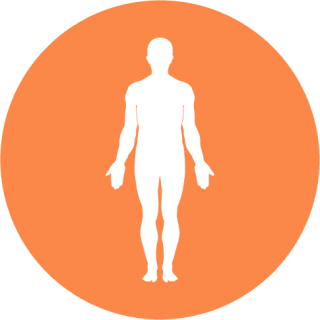Things to consider when working with specific sources of data or materials such as human participants, animals, biological materials and cultural artefacts.
 General considerations:
General considerations:

- Do you need Material Transfer Agreement?
- Do you need specific export/import permissions or licenses? Compliance and Assurance team offer guidance and support.
- Do you need to register your research, e.g. clinical trial registry?
- Check if there are any specific faculty/ departmental requirements, e.g. policy regarding the illicit trade in antiquities.
- Find out more how UCL manage collections.
- Sensitive Research
Does your research fall under the sensitive research criteria? See Definition of Sensitive Research?
Research that is classed as ‘sensitive’ carries with it particular risks that need to be managed, with particular consideration being given to the potential consequences of these risks. This includes risks and consequences for:
- individual researchers;
- research participants;
- individuals, groups, communities connected either with the research participants or the research topic/focus
- the reputation of UCL and its researchers.
- Data Management
Have you checked data management requirements? Data management in research covers a wide area from the secure collection of data to the safe storage, stewardship and disposal of data, see Research Data Management webpages.
Data Management Plan
Do you have a Data Management Plan?
Data Protection
Will you collect any personal data? For personal data collected and stored outside of the UK, ensure that you comply with local privacy legislation (e.g. USA, Malaysia) and provide the same or equivalent safeguards as in the UK. Appropriate data safeguards include:
- Using anonymised data where possible
- Applying security measures, e.g. encryption, access controls and locks
- Minimising the data e.g. pseudonymisation
- Not causing substantial damage or distress
- Ensuring that the purpose of the study does not directly affect individuals
- Having research ethics approval in place.
Transferring Data
Will you be sharing personal data with colleagues outside of the UK or vice versa? Remember that data transfer also involves transient or unintentional transfers; where data is transferred to another recipient who is not the intended recipient. This happens when a website or web application being used (either to store or collect data) is based outside the UK –check terms and conditions. For transfers to other countries, safeguards must be put in place. See Practical Data Protection Guidance Notices.
Registration
If you are going to collect personal data, register your study. See UCL Legal Services website, 'Research Registration Form‘.
Impact assessment
Check if you need to fill in the Data Protection Impact Assessment, see DPIA.
For more details and guidance note on applying these appropriate safeguards please see UCL Data Protection.

Human
- Scope of research
This advice applies to studies with human participants and the collection and/or study of data derived from human participants: human tissue and bodily fluids, and human data and records (such as, but not restricted to medical, genetic, financial, personnel, criminal or administrative records and test results including scholastic achievements).
Cultural Differences
- Are there any local cultural sensitivities that could affect the research, e.g. participant recruitment?
- What is important for the local participants?
- Do you have local support plan for the participants?
- Could your cultural norms affect the participants?
Safeguarding
Please see UCL Safeguarding policy and International Safeguarding Policy and Procedure.
- Children
Check what are the national legal regulations and ethical standards, including legal age of consent, or whether parental/guardian consent will be required e.g. UN Convention on the Rights of the Child defines a child as everyone under 18.
For specific UCL ethics guidance see Research with Children and UCL REC guidance note.
For specific guidance on data protection see GDPR research with children.
Safeguarding
Please see UCL Safeguarding policy and International Safeguarding Policy and Procedure.
- Are there any potential differences in childcare and childrearing?
- What are the local legal requirements and policies? How are they enforced? Can this limit the confidentiality?
- Consider if your actions are likely to do any harm.
For more information see UNICEF guidance.
- Ethics Approval
UCL policy states that all research with human participants or using human data is expected to have ethical approvals conforming to UK’s AND the study country(ies) regulations.See more information Research Conducted Overseas.
UK Ethics Approval
Depending on the nature and location of your research you may need to apply for ethical approval from one or more ethics committees, including within UCL or external committees.
For more information on which ethics committee to apply to see UCL Research Ethics webpages.Overseas Ethics Approval
Adhere to local ethical and legal requirements. This would generally mean obtaining approval from a local ethics committee or, if one does not exist, approval from the institution, hospital or facility where the researcher will be conducting the research. Some information can be found here: International Compilation of Human Research Standards
Please note that some countries require additional ‘Research Clearance’, this is not the same as ethics approval. See flowchart under ‘Legal Requirements’.

Animal
- Legal Requirements
Consider if there are different local legal requirements and permissions necessary to work with or access the animals, e.g. work with endangered species.
- Ethical Approval
You must notify your local Animal Welfare and Ethical Review Body (AWERB) in the UK, before you begin your research as you might require formal approval.
This is relevant for all types of research including:
- Import of animal tissues (e.g., blood samples and antibodies).
- Export of live animals.
- Collaborative studies, any aspect of which uses animals in a laboratory outside the UK.
For more information see UCL Biological Services.
- Access and Benefits
Each country has rights over the genetic resources that exist within their country. If you want to access such resources, you need to comply with relevant Access and Benefit Sharing regulations.

Other biological
- Local Legal Requirements
Consider local legal requirements and permissions necessary to work with or access the materials: plants (work with endangered species?), microorganisms, etc.
- Access and Benefits
Each country has rights over the genetic resources that exist within their country. If you want to access such resources, you need to comply with relevant Access and Benefit Sharing regulations.

Other material
- Local Legal Requirements
Consider local legal requirements and permissions necessary to work with or access the materials – e.g. cultural artefacts, non-renewable resources such as minerals.
 Close
Close

